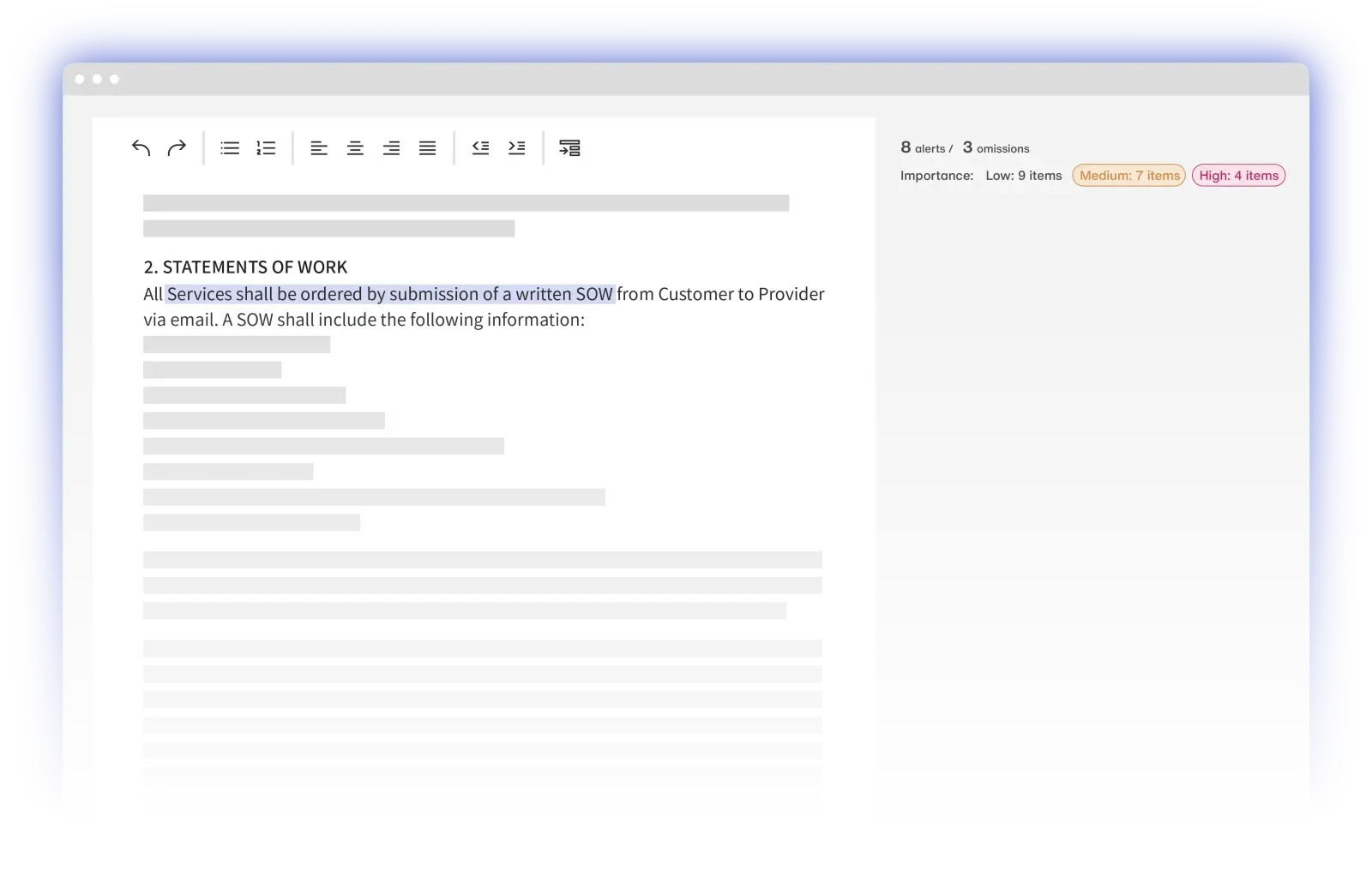
LegalOn Technologies Raises $50M from Goldman Sachs as Legal AI Market Expands to $4 Billion
Tokyo's LegalOn Technologies Captures $50M as AI Transforms Legal Industry's $4 Billion Future
Goldman Sachs leads funding round for contract review startup as legal AI market explodes amid enterprise automation demands
A quiet revolution is transforming corporate legal departments across Japan. Where attorneys once spent weeks reviewing dense contracts, artificial intelligence now completes the same work in hours—sometimes minutes. At the center of this transformation is Tokyo-based LegalOn Technologies, which just secured $50 million in Series C funding led by Goldman Sachs Growth Equity. This latest round brings their total funding to over $200 million since the company's founding.
The funding, completed in late July 2025, comes at a pivotal moment for legal technology. As generative AI reshapes industries from finance to healthcare, even legal departments—traditionally among the most conservative technology adopters—are embracing automation tools that promise dramatic cost reductions and faster deal-making. LegalOn's aptly named software, Review, reportedly cuts contract review times by up to 85% while maintaining the precision essential to legal work.
LegalOn Technologies Fact Sheet (July 2025)
| Category | Details |
|---|---|
| Company Overview | - Tokyo/San Francisco-based AI contract review startup. - Founded in 2017 by ex-corporate lawyers Nozomu Tsunoda and Masataka Ogasawara. |
| Funding | - $50M Series C (July 2025, led by Goldman Sachs). - Total raised: $200M+ (backers: SoftBank, Sequoia China, WiL, Mizuho Bank). |
| Product: LegalOn Review | - AI contract review tool cuts review time by 85%. - Uses 50+ attorney-built playbooks for risk flagging/edits. - Integrates with workflows (Slack, email). |
| Matter Management | - New product for contract tracking/collaboration. - Features dashboards, automation, audit trails. |
| Customers | - 7,000+ organizations (25% of Japan’s public companies). - 4x growth in U.S./U.K. markets. |
| AI & Partnerships | - OpenAI collaboration for advanced LLMs. - Focus on accuracy, lawyer-in-the-loop AI agents. |
| Security | - SOC 2, ISO 27001 certified. |
| Leadership Vision | - CEO Daniel Lewis: AI augments (not replaces) lawyers. |
| Market Context | - Legal AI market: $1.9B (2024), 13.1% CAGR. - CLM market: $1.5B (2022), 55% adoption in corporate legal. - Competitors: Harvey AI ($5B valuation), Ironclad, Luminance. |
| Challenges | - Global expansion/localization. - Competition from general-purpose AI (e.g., ChatGPT). - Need for SaaS metrics transparency (ARR, churn). |
The Anatomy of Legal Disruption
LegalOn was born from a straightforward observation by founders Nozomu Tsunoda and Masataka Ogasawara, both former corporate lawyers: legal professionals were drowning in routine work that machines could handle more efficiently. Their flagship product taps into more than 50 attorney-developed playbooks to automatically identify contractual risks and suggest edits, transforming a once painstaking manual process into a streamlined AI-assisted workflow.
The market has responded enthusiastically. LegalOn now serves over 7,000 organizations globally, including roughly 25% of Japan's publicly traded companies. This impressive penetration establishes the company as the dominant player in Japan's legal AI market. Their international expansion is gaining significant momentum too—business in the United States and United Kingdom has quadrupled over the past year.
The company has recently expanded beyond contract review. Their newly launched Matter Management system helps legal teams track, manage, and collaborate on various legal requests, integrating seamlessly with communication platforms like Slack and email. This expansion reflects LegalOn's broader vision: becoming a comprehensive legal workflow platform rather than a single-purpose tool.

Silicon Valley Meets Corporate Law
A strategic partnership with OpenAI gives LegalOn a significant edge in the competitive legal tech landscape. Unlike rivals who rely on generic large language models, LegalOn works directly with OpenAI's engineering teams to develop specialized legal AI agents. This collaboration provides access to cutting-edge technology while ensuring legal professionals maintain control over outcomes—critical in an industry where accuracy can make or break million-dollar deals.
The partnership embodies CEO Daniel Lewis's philosophy that AI should enhance rather than replace legal professionals. The technology handles repetitive, time-consuming tasks, freeing attorneys to focus on strategic business value and complex legal reasoning that still demands human expertise.
Market Forces Drive Explosive Growth
The legal AI sector is booming. The contract lifecycle management market reached $1.5 billion in 2022, with 55% of corporate legal departments already using CLM solutions. The broader legal AI market was valued at $1.9 billion in 2024, with analysts projecting 13.1% compound annual growth through 2034.
For AI in contract management specifically, forecasts anticipate growth to nearly $4 billion by 2033—a remarkable 27.2% compound annual growth rate. This trajectory reflects mounting pressure on legal departments to cut costs while managing increasing transaction volumes in our interconnected global economy.
Global funding in legal tech reached $2.1 billion in 2024 and continues accelerating in 2025, highlighting investor confidence in AI-driven solutions for traditionally manual legal processes. Venture capitalists recognize that legal departments represent one of the last major corporate functions to undergo digital transformation, creating substantial opportunities for early movers.
Competitive Battleground Intensifies
LegalOn operates in an increasingly crowded field of well-funded competitors. Harvey AI recently achieved a $5 billion valuation following a $300 million Series E round, targeting elite law firms with AI-powered legal assistants. Ironclad, valued at $3.2 billion, leads the broader contract lifecycle management space with approximately 1,000 customers and $139.9 million in 2024 revenue.
Other key players include LinkSquares, serving over 1,000 customers globally with $161 million in funding, and Luminance, which reports more than $50 million in annual revenue serving 700+ clients across 60 countries. The intense competition reflects both the market's size and the high stakes in establishing platform leadership.
LegalOn's unique advantage comes from combining expert-curated legal content, attorney-built playbooks, and regional market leadership in Japan. This approach differs from competitors who rely more heavily on generic AI models without the deep legal expertise embedded in LegalOn's system.
Investment Implications and Market Outlook
The legal AI sector presents compelling investment opportunities driven by converging trends. Enterprise software adoption patterns suggest legal departments are entering a period of accelerated technology adoption, similar to transformations in finance and marketing over the past decade.
Analysts suggest companies demonstrating clear efficiency gains and measurable ROI in legal workflows may benefit from expanding budgets as general counsels justify technology investments to cost-conscious executives. LegalOn's claimed 85% reduction in review times, if consistently achieved across diverse client implementations, could drive significant customer acquisition and retention.
Market dynamics favor platforms that combine specialized domain expertise with advanced AI capabilities. Generic AI tools may struggle to meet the accuracy and compliance requirements that legal professionals demand, potentially creating sustainable competitive advantages for purpose-built solutions like LegalOn's Review platform.
International expansion looks particularly promising. As multinational corporations standardize legal operations across jurisdictions, demand for AI tools that can handle diverse regulatory environments and contract types will likely increase. LegalOn's successful expansion from Japan to Western markets suggests strong product-market fit across different legal systems.
Investors should monitor several risk factors, however. Rapidly advancing general-purpose AI models could commoditize basic contract review functions, potentially squeezing margins. Additionally, established enterprise software providers may integrate AI capabilities into existing platforms, intensifying competitive pressure.
The Road Ahead
Looking forward, the legal AI market appears set for continued rapid growth as adoption moves beyond early adopters to mainstream corporate legal departments. Market indicators suggest increasing comfort with AI-assisted legal work, driven by successful implementations and mounting cost pressures.
LegalOn's substantial funding and strategic partnerships position it well to capitalize on this expanding opportunity. The company's focus on maintaining lawyer oversight while dramatically improving efficiency addresses key concerns about AI reliability in legal contexts.
For the broader legal industry, LegalOn's growth trajectory signals an inflection point where AI adoption shifts from experimental to essential. As contract volumes grow and legal complexity increases, tools that can process routine work while flagging critical issues may become indispensable infrastructure for modern legal departments.
Investment Thesis
| Category | Details |
|---|---|
| Funding & Traction | - Closed $50M Series E (24 Jul 2025), total funding $200M+. - 7,000+ customers (-40% YoY), 25% penetration in Japan’s public companies. - U.S./U.K. ARR "quadrupling". - Comparables: Harvey ($5B val.), Ironclad ($3.2B val.), LinkSquares ($0.8B val.). |
| Key Signals | 1. Deep domain + playbooks: 50+ attorney-authored playbooks for accuracy. 2. Hybrid Asia-ROW footprint: Japan (low CAC) + West (TAM expansion). 3. OpenAI alliance: Early model access + co-engineered "legal agents." |
| Market Opportunity | - CLM TAM: $1.56B (2025) → $3.28B (2035, 12% CAGR). - Legal-AI overlay: $3.11B (2025) → $10.8B (2030, 28% CAGR). - Valuation: Conservative $1–1.3B (15x ARR multiple) → potential $2.2–5.4B by 2027. |
| Traction Metrics | - Logo growth: 7,000 orgs (+40% YoY), but SME-heavy in Japan. - International scaling: U.S./U.K. ARR "quadrupling" (no absolute $). - Net retention: Not disclosed. - Capital efficiency: $200M raised for <$100M ARR (high burn risk). |
| Competitive Landscape | - Harvey: $75M run-rate, $5B val., big-law focus. - Ironclad: $150M ARR, $3.2B val., end-to-end CLM. - LinkSquares: $50M ARR, $0.8B val., mid-market focus. - Evisort: Acquired by Workday ($250–300M). - Takeaway: LegalOn leads in customer count but lags in revenue density. |
| Key Risks | 1. Commoditization: GPT-5 may erode margins. 2. Opaque metrics: Low ARPU ($12k?) vs. enterprise (>$25k). 3. Integration race: Competing with suite-level AI (e.g., Microsoft Copilot). 4. Regulatory fragmentation: EU AI Act, data residency costs. |
| Upside Levers | 1. Agentic workflow: Expand to pre-review + post-signature analytics. 2. Vertical bundles: Fintech/pharma regulatory playbooks. 3. Marketplace strategy: OEM to regional resellers. 4. Data network effects: Sell anonymized clause benchmarks. |
| Valuation Scenarios | - Base (2027): $180M ARR, 12x → $2.2B. - Bull: $300M ARR, 18x → $5.4B (U.S. mid-enterprise + Asia Pac wins). - Bear: $110M ARR, 8x → $0.9B (SME erosion, PE exit). |
| Due Diligence Checklist | - Logo cohort ACV/expansion by region. - CAC payback <18 months. - Playbook latency (regulation → release time). - GPU/Opex per contract vs. margins. - Compliance roadmap (EU AI Act, India DPDP). - SMB vs. enterprise churn. |
| Adjacent Opportunities | 1. Reg-tech microagents: Niche risk calculators (GDPR, ESG). 2. Synthetic data labeling: Legal RLHF datasets. 3. Post-signature analytics: Contract-to-ERP reconciliation. 4. Outcome insurance: Underwrite AI review errors. |
| Bottom Line | LegalOn combines Japan domain depth + Gen-AI tailwinds. Series E is a bridge to prove Western scalability. VCs: Pro-rata attractive if ARR transparency improves + net retention >110%. Founders: Focus on vertical specialization or adjacent pain points (e.g., post-signature analytics). |
Market analysis suggests potential opportunities exist in legal AI technologies, but investors should conduct thorough due diligence and consider consulting financial advisors. Past performance does not guarantee future results, and technology investments carry inherent risks including competitive pressures and market volatility.